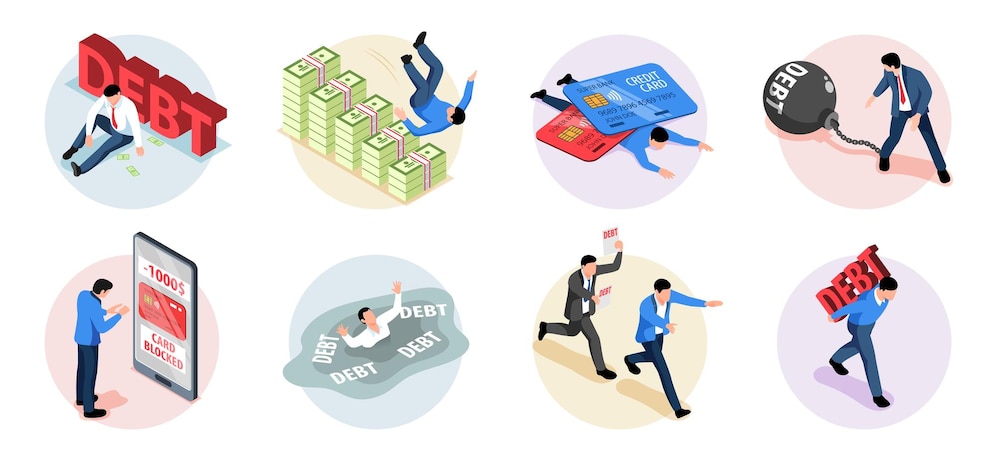
15 Common Money Traps That Can Wreck Your Finances and Ruin Your Life
Table of Contents
ToggleIntroduction:
We all want to accomplish and maintain financial security, but there are many financial hazards that might endanger that objective and have a significant negative influence on our lives. In this post, we’ll examine 15 typical money pitfalls to watch out for and provide in-depth advice on how to avoid getting caught in these uncomfortable situations.
1. Living Beyond Your Means:
Continuously spending more than you earn can lead to an unsustainable lifestyle, mounting debts, and emotional stress. It’s crucial to assess your income and create a realistic budget to live within your means.
2. Credit Card Debt and High-Interest Rates:
Accumulating high-interest credit card debt is a fast track to financial ruin. Paying off credit card balances in full each month is the best approach to avoid costly interest charges.
3. Inadequate Emergency Savings:
Not having an emergency fund can force you into debt when unexpected expenses arise. Strive to save at least three to six months’ worth of living expenses for peace of mind.

4. Impulse Buying and Emotional Spending:
Impulse purchases and emotional spending can rapidly exhaust your financial resources. Practicing mindful spending, making shopping lists, and seeking healthier outlets for emotions can help you avoid this trap.
5. Neglecting Investment Opportunities:
Keeping all your money in a low-yield savings account may seem safe, but it often leads to missed opportunities for wealth accumulation. Educate yourself about investment options and consider a diversified investment strategy.
6. Ignoring Retirement Planning:
Failing to plan for retirement can result in financial hardship during your later years. Regularly contribute to retirement accounts, take advantage of employer matching programs, and consult with a financial advisor.
7. Relying on Payday Loans and Predatory Lending:
High-interest loans, like payday loans, can trap you in a cycle of debt. Explore alternatives such as credit unions or community lending programs when facing financial emergencies.
8. Excessive Housing Costs:
Overspending on housing expenses can strain your budget. Ensure that your housing costs, including rent or mortgage, do not exceed 30% of your income.
9. Underestimating the Importance of Insurance:
Insufficient insurance coverage can leave you vulnerable to unexpected financial setbacks. Review your insurance policies to ensure they adequately protect your health, home, and assets.

10. Failure to Track Expenses:
Neglecting to monitor your spending can lead to financial leaks. Utilize budgeting apps and regularly review your finances to identify areas where you can cut costs.
11. Falling for Get-Rich-Quick Schemes:
Investments promising quick and unrealistic returns are often scams. Exercise caution, conduct thorough research, and consult with financial experts before making investment decisions.
12. Co-signing Loans for Others:
Co-signing a loan for someone else can put your own financial stability at risk if they default. Be extremely cautious when agreeing to co-sign and consider the potential consequences.
13. Neglecting Tax Planning:
Failing to plan for taxes can result in overpayments. Seek guidance from tax professionals to optimize your tax situation and minimize liabilities.
14. Using Shopping as an Emotional Coping Mechanism:
Retail therapy can lead to overspending and financial strain. Identify healthier ways to manage stress and emotional well-being without resorting to excessive spending.
15. Lack of Financial Education:
Ignorance of basic financial concepts can lead to poor money management. Invest in financial education through books, courses, or seminars to make informed and empowered financial decisions.
Conclusion:
Avoiding these 15 common money traps requires a combination of discipline, financial literacy, and strategic planning. By being mindful of these pitfalls and implementing proactive financial strategies, you can safeguard your financial future and lead a more secure and prosperous life. Remember, financial security is an ongoing journey that rewards those who make informed choices and prioritize their financial well-being.
Contact Us today for any feedback & suggestions.

Alice Knox
Follow Us On


